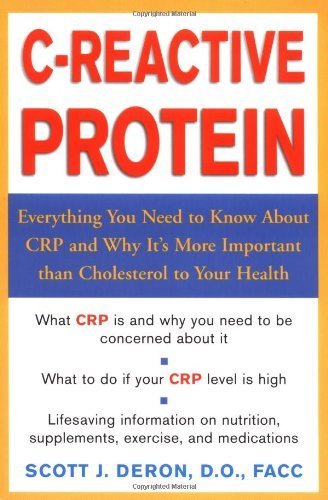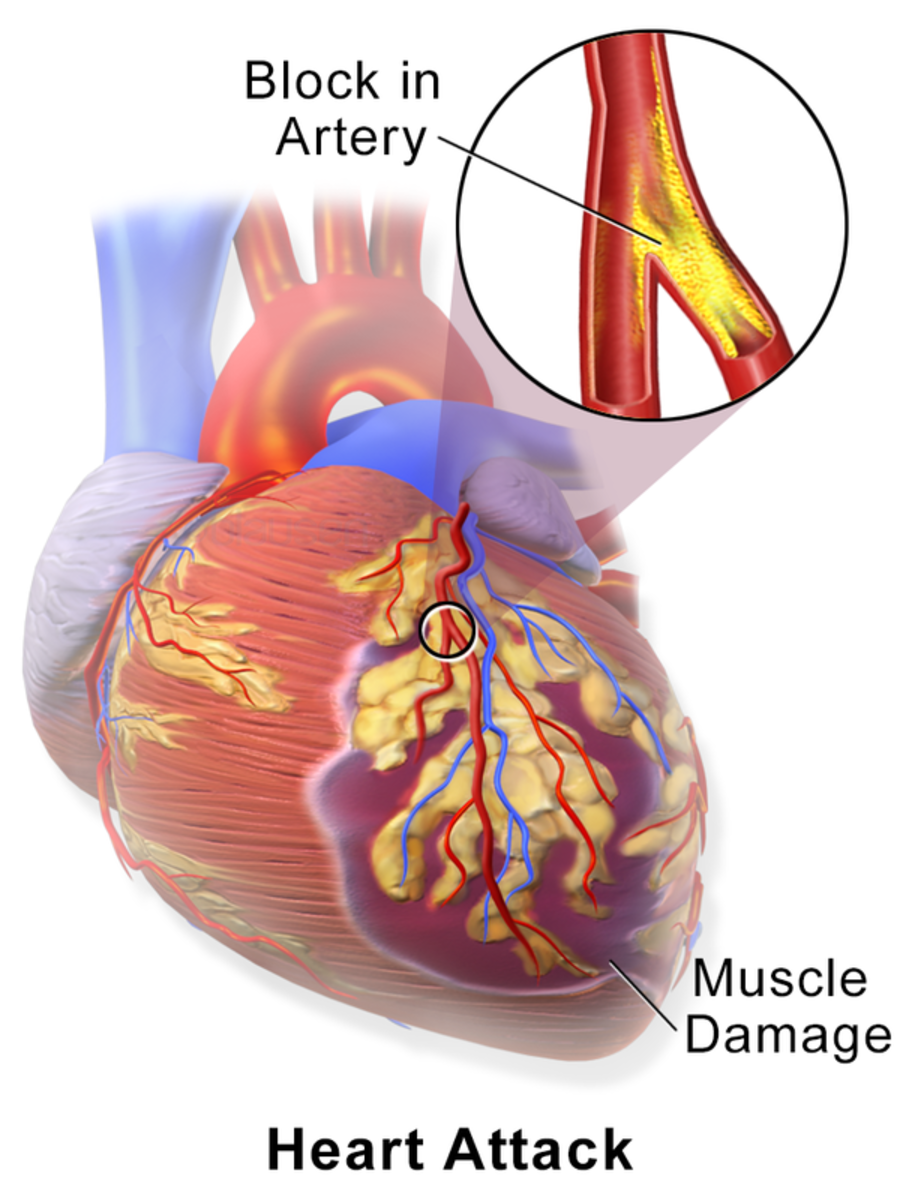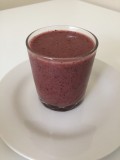Chronic Inflammation, The Real Killer

Chronic Inflammation the Real Culprit
If there was one common denominator between several chronic diseases, including heart disease, that could help prevent them, would you want to know about it? If heart disease, cancer, Alzheimer's, Lupus and other auto-immune diseases and arthritis could be prevented just by knowing about this common denominator, wouldn't doctors know about it? Not necessarily. Traditional doctors are trained to treat symptoms rather than causes of diseases.
Heart disease is the number one cause of death in the United States. Traditional medicine's first-line defense against heart attacks is cholesterol-lowering drugs. There are many advertisements on television and in magazines every day aggressively trying to get more and more people to take their prescription medications which grow by the millions. But how much do these medications really help? Does just lowering cholesterol really prevent heart attacks? If you think so, just read the disclaimers on the bottom of some advertisements, such as, “This drug has not been shown to prevent heart disease or heart attacks in people who have not had a heart attack.”
It is not the necessarily the bad cholesterol, or LDL, that is dangerous. As a matter of fact, some families tend to have high LDL and low HDL and are healthy. Reviews of scientific evidence show that measuring the element C-reactive protein, an inflammatory marker in the blood, can a better indicator of potential of heart attacks than cholesterol. C-reactive protein measures inflammation. Chronic inflammation results in significant damage to the arterial system. Scientists now believe that chronic inflammation plays a significant role in pathological conditions ranging from anemia and allergy to coronary heart disease, psoriasis and even stroke, as well as those previously mentioned. Inflammation can even cause the inflamed gums thought to contribute to cardiovascular disease and far more diseases than thought previously. Well-established cardiac risk factors such as obesity, smoking, hypertension and chronic periodontal disease all increase inflammation and C-reactive protein levels in the body. Fat cells literally pump out C-reactive protein, which could explain why being overweight is so bad for the heart.4 Harvard cardiologist Paul Ridker and coworkers took this line of conjecture one step further and started looking at CRP as an indicator of cardiovascular disease in seemingly healthy people. They found, in both men and women, that those with elevated CRP levels were two to three times more likely to suffer from a heart attack or stroke. The men’s study showed that inflammation, indicated by elevated levels of CRP, was present five to ten years in advance of a heart attack
It's NOT Cholesterol; It's NOT Fat!
Purpose of Inflammation
Inflammation is meant as a protective mechanism. All abnormal injuries, sunburn, headaches internal and external injuries, or sore muscles, inflammation serves a purpose. Inflammation is the body's defense against these "clear and present dangers." It is also an immune response that occurs after infection. Virus and bacteria infection thrive at the normal body temperature of about 98.6, after which they pour toxins into the bloodstream. If the immune system becomes overwhelmed or is weak, the body “bakes” the virus or bacteria with the heat of inflammation.
However, inflammation involves a delicate balance; if the body's inflammatory response is too intense, or does not turn off, it can harm otherwise healthy tissues. Autoimmune diseases provide another example of inflammation gone askew. It targets its own body because it no longer knows how to differentiate between some of the body's healthy proteins and foreign invaders. Asthma, eczema, autoimmune diseases and some types of arthritis are chronic forms of low-grade inflammation, where the immune system mounts defenses that go beyond what is necessary, reaching an elevated plateau. This when inflammation becomes damaging.
The production of C-reactive protein is an essential part of the inflammatory process, and the measurement of this substance reflects the level of inflammatory activity deep within the body that otherwise goes unseen. Certain conditions tend to create a state of excessive inflammation within the circulatory system.
Anti-inflammatory Foods
Inflammation and Cognitive Decline
Recently, inflammation is also recognized as playing a central role in the debilitating cognitive decline that characterizes neurological disorders such as Alzheimer's disease and vascular dementia. Previously, mental decline and memory loss have been considered inevitable hallmarks of old age. Still, something has to cause the problem. "Just old age" is an irresponsible answer. New research suggests that inflammation, and with it age-related decline, can be avoided through early intervention of low-grade chronic inflammation. For instance, Huntington's disease is characterized by chronic brain inflammation caused by the immune system's misguided attempts to eliminate a defective protein that results from a genetic defect. Although their inflammation triggers are different, diseases such as Alzheimer's, Parkinson's, amyotrophic lateral sclerosis (Lou Gehrig’s disease, or ALS) and even multiple sclerosis, are also characterized by chronic inflammation of neural tissues.1
Curcumin

Cooling The Heat
Common OTC Nonsteroidal anti-inflammatory drugs, such as aspirin and ibuprofen, commonly known as Aleve and Advil, have shown to help prevent the progression of Alzheimer's, as well as inflammation. However, they also cause major gastrointestinal and cardiovascular complications, including bleeding, especially when taken regularly. There are easier and healthier ways to manage inflammation. The best preventive way is to take fish oil. A recent study found that just three grams of fish oil a day was heart-protective.2 Eat more fish, the best source of anti-inflammatory omega-3 fats. Even once a week can reduce your risk of Alzheimer’s by 60 percent! 3 If you eat a lot of red meat, three or more times a week, and egg yolks several times a week, you may want to cut back. The protein is good for you, but egg yolks also contain pro-inflammatory arachidonic fatty acids. It is not because of the cholesterol in the eggs! When you do eat eggs, eat those that are organic, free range and have a third of the fat, such as Eggland’s Best. We recommend the very important addition of a good liquid or capsules of fish oil daily. Omega 3 fat is essential to building cellular membranes and protective myelin sheaths, which can help prevent brain related conditions and disease.
Antioxidant supplements, such as B-Complex, C and E, also help control free radicals produced by inflammation. Curcumin has also shown to reduce inflammation. The combination of Boswelia, Curcumin and Qwercetin found in Vital's BCQ, is a safe and healthy way to reduce inflammation. It also supports joints and sinuses, and is good for the digestive system by reducing levels of substance P, a powerful inflammatory agent.
Scientific Facts of Chronic Inflammation and Death
Heart Shot Video Prt 2 (Inflammation a Killer)
Treat the Cause, Relieve the Symptoms
Traditional medicine treats symptoms with pharmaceutical drugs that have dangerous effects and often lead to more problems, followed by more drugs. Holistic and Integrative medicine treat the cause of the symptoms. In the case of chronic inflammation, prevention is pretty easy and certainly safer. Healthy living and eating, putting into our bodies what nature expects, is the best way to be healthier and live longer.
That is not to say there is not a place for traditional medicine. Of course there is. It is when we misuse it that we often run into serious and sometimes deadly, problems. Many pharmaceuticals are misused from lack of knowledge. Holistic medicine also works from the premise that being responsible for our own health is the path to healthy longevity. Preventing disease is always better and easier than treating a disease. Have your C-reactive protein tested. If you do have chronic inflammation, BCQ is safe and effective, rather than NSAIDS, and proper nutrition is critical .
Next Hub: Holistic Prevention and Treatment of Inflammation.
The Great Cholesterol Lie
- Heart Attack, Could Be Prevented With An Anti Inflammatory Diet
Is Heart Attack Caused By Blocked Coronary Arteries
BCQ, healthier than NSAIDs

Leading Causes of Death in the United States
C-reactive Protein and Coronary Heart Disease
- Information on the C-Reactive Protein Blood Test (CRP) by eMedicineHealth.com
Information on the c-reactive protein (CRP) blood test. Elevated CRP levels in the blood may indicate an increase risk for heart attack or stroke.
C-Reactive Protein, an Easy Test
- Learn more: C-reactive protein
C-reactive protein measures an inflammatory response in the body and has been shown to play a role in atherosclerosis and blood clot formation. Patients should ask their doctor specifically about hs-CRP, as this test helps determine heart disease ri










